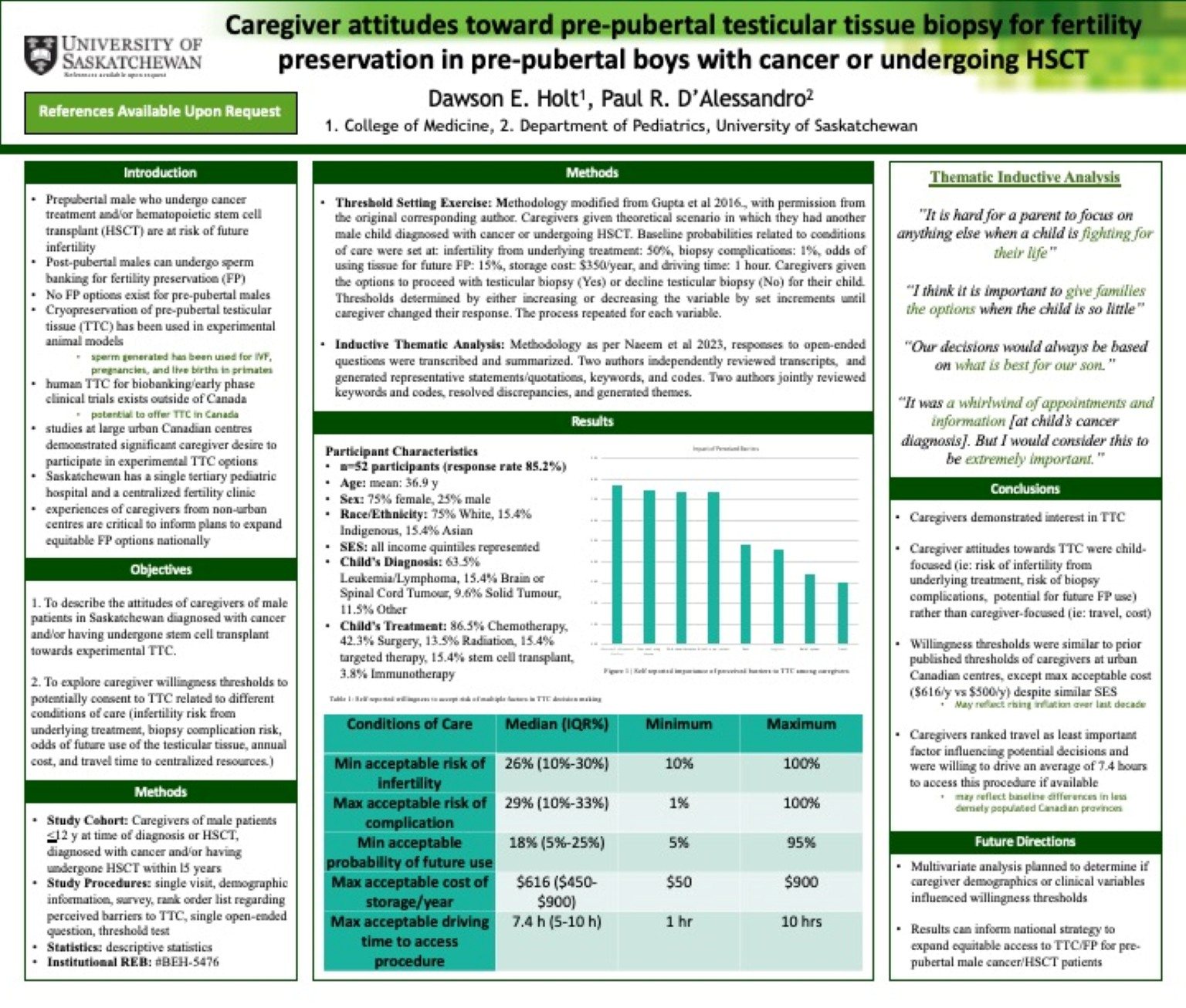
Parent/caregiver attitudes toward pre-pubertal testicular tissue biopsy for fertility preservation in pre-pubertal boys with cancer or undergoing hematopoietic stem cell transplant in Saskatchewan
Dawson Holt
Purpose: Prepubertal males who undergo cancer treatment or stem cell transplant are at risk of infertility in the future. While post-pubertal males can undergo sperm banking for fertility preservation (FP), there are no current clinical options for FP for pre-pubertal males. In animal models, immature testicular tissue cryopreservation (TTC) has been utilized to generate sperm used for in vitro fertilization, pregnancies, and live births. Human TTC options exist outside Canada for experimental biobanking, and there is potential to expand TTC options within Canada. In order to build an equitable national strategy, attitudes of caregivers toward TTC from less densely populated provinces need to be documented. The aims of this study were to describe attitudes of caregivers of pre-pubertal male cancer/HSCT patients diagnosed in Saskatchewan within the last five years towards TTC, and to determine willingness thresholds to potential consent to TTC.
Materials and Methods: We conducted a single centre study with caregivers of prepubertal boys with cancer or requiring stem cell transplant. A questionnaire with demographic information, a rank-order list regarding perceived barriers to TTC, and an open-ended question was administered. An additional theoretical threshold setting exercise was conducted.
Results: Fifty-two caregivers participated (response rate 85.2%; 75% female; age 36.9y; 75% White; 15.4% Indigenous; 15.4% Asian; all five income quintiles represented.) On average, caregivers endorsed willingness to accept TTC in the setting of: minimum 26% chance of infertility from underlying treatment; 29% chance of testicular biopsy complications; 18% chance of future FP use; maximum $616 annual storage cost; and maximum 7.4 hour driving time. Rank-order list of perceived barriers and responses to open-ended question suggested that caregiver attitudes were child-focused (ie: risk/benefit of procedure) rather than parent-focused (ie: travel, logistics, cost.)
Conclusions: Caregivers across Saskatchewan demonstrated interest in TTC. These results can inform efforts to expand TTC options for pre-pubertal cancer/HSCT patients locally and nationally.
